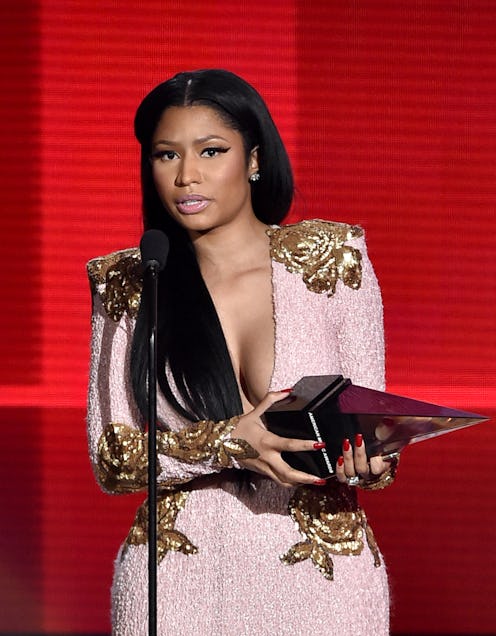Entertainment
The One Tweet Which Defined 2015
When historians look back on pop culture trends from 2015, they'll undoubtedly notice four major talking points; defining moments in the transgender rights movement, women stepping out in powerful clusters known as the "squads," a rightfully consistent conversation surrounding a lack of representation of African-Americans in the media, and women taking charge and making TV shows, music, and movies for women more than ever (although I don't think I'm out of line in saying that we still definitely need more). And, furthermore, they'll find a lot of this evidence on Twitter. You might think it almost impossible to find one tweet which could define all of 2015 within the limitations of Twitter's 140 characters, and you'd be almost correct.
But, in amongst all the many pop cultural tweets of 2015, there is one which truly brought many of these discussions to the forefront (despite the media's many attempts to twist the issue into a salacious cat fight) — and it truly does define 2015.
Back in July of 2015, the MTV Video Music Award nominations were announced, and one of the undoubtedly best videos of the year — "Anaconda" by Nicki Minaj — was somehow missing from the Best Music Video Of The Year category, something which Minaj saw a deep problem with.
It would only take the socially vocal Taylor Swift (who had just released her video for "Bad Blood") to step in and mistakenly take the tweet personally for the issue to take on a life of it's own. The issue spiralled from a single tweet into a media discourse on intersectional feminism, as well as the lack of acknowledgement on the influence of black artists in our culture.
The dynamics of the tweet exchange also rang a painfully true chord at the state of feminism in 2015; that, while it's great to have an understanding of and a passion for gaining equality, that it means nothing unless it's inclusive to all races and classes.
In a year in which Viola Davis became the first black actress to win an Emmy Award (giving a spectacular speech which continues to give me goosebumps) and where Black Lives Matter became a trending movement in response to unwarranted racial profiling and police brutality in the U.S., Minaj's tweets were vital in continuing a discussion about African-American representation in the media across the board. It also raised the important question of why it is that white artists can mimic black culture and be celebrated for it, while their black peers can own the culture and get nothing.
Many other artists would have accepted the absence of their music video and moved on, but not Minaj — and for that she's a fearless, ferocious squad unto herself. Her comments and her refusal to back down from the argument not only gave us all something to chew on, but hopefully something to learn from too.
